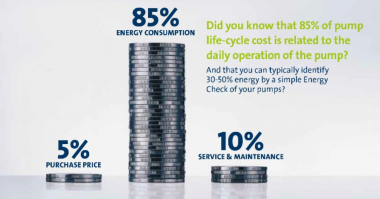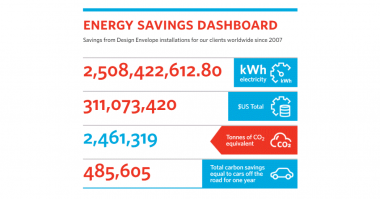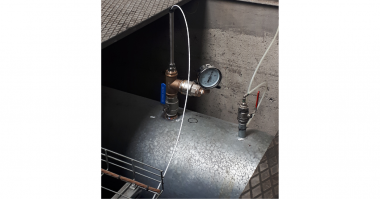Author: Jennifer K. Muir, P.E.
The real barriers to implementing energy efficiency at water and wastewater facilities – and why it’s not always about the money.
Bridging the gap between available technologies and less than optimal operations often appears to solely depend on funding, grants, and unattainable capital financing.
But is it really the money that’s holding us back from the net zero plants of the future?
1. Effectively Making the Business Case
Making the business case goes beyond assessing the simple payback of replacing a dated, oversized, or inefficient piece of equipment. Life cycle costing of the alternatives incorporates the less obvious savings: maintenance costs, future replacement, labor time requirements, and system reliability. Modernizing and upgrading becomes an easier sell when we present the full picture and true costs. If we take it a step further, can we put a price on the added resiliency of the proposed improvements or future benefit of sustainable operations?
2. Managing Risk
We are protecting public and environmental health through water and wastewater treatment infrastructure. The permits and treatment requirements are stringent. We are managing risk. Whether it’s real or perceived, risk associated with modifying existing systems or equipment creates uncertainty. Hesitation results in delay, and the cost of delay is real dollars and kilowatt hours (kWhs). We must test, pilot, trial, and prove these technologies and operating strategies are effective and reliable. Most importantly, these results need documentation. We need the manufacturers to continue to invest and partner with us through in-plant trials and performance tests. Acceptance of enhanced automation, embracing technology, and willingness to change will be driven by data and proven results. The message can’t only be “energy was saved”, but that this goal was achieved without compromising treatment performance or permit requirements.
3. Training
Those who operate and maintain water and wastewater systems are part of a critical backbone of the local community and local environment. Behavior modification has gotten significant attention in energy efficiency for building systems, but in the process world, the focus has been on the mechanical elements. The equipment alone does not create the results. We have all seen the successfully installed, but less than effective, energy efficiency measures: the VFD that operates at full speed or the new age instrumentation that never functioned properly. We have failed to empower the front line. Relying on smart systems, new technologies, and responsive control functions requires an understanding of how it works, what its purpose is, and how to optimize its benefit. Have we truly invested in these new skills and in the people we have asked to make our sustainable future a reality?
Please share your thoughts in the comments section below. We’d like to hear from you!





All of your points are spot on. I see one of the biggest barriers being the rules and regulations associated with municipal purchasing practices. Until our municipalities can purchase equipment in much the same manner as industrial installation it will always be a struggle installing the most efficient equipment into our plants.
Ken Maltese
All you points are valid as is Glenn’s. I would posit, however, that even in the private sector the social barriers to change certainly delay progress and in some cases block it. Procurement policies need to be revised but the “we always have done it this way” come up a lot. Making the business case is necessary but may not be enough to convince the line staff that we are not just adding more work on them. Sounds like we could find a lot of examples to share. Nice job Jen.
Great points and your questions are correct. Another issue I always run into is the “gap” or “major difference” between a “commission” run utility, and one that is run by elected officials. They are worlds apart and have significant impact on the effectiveness of the processes of each municipality.